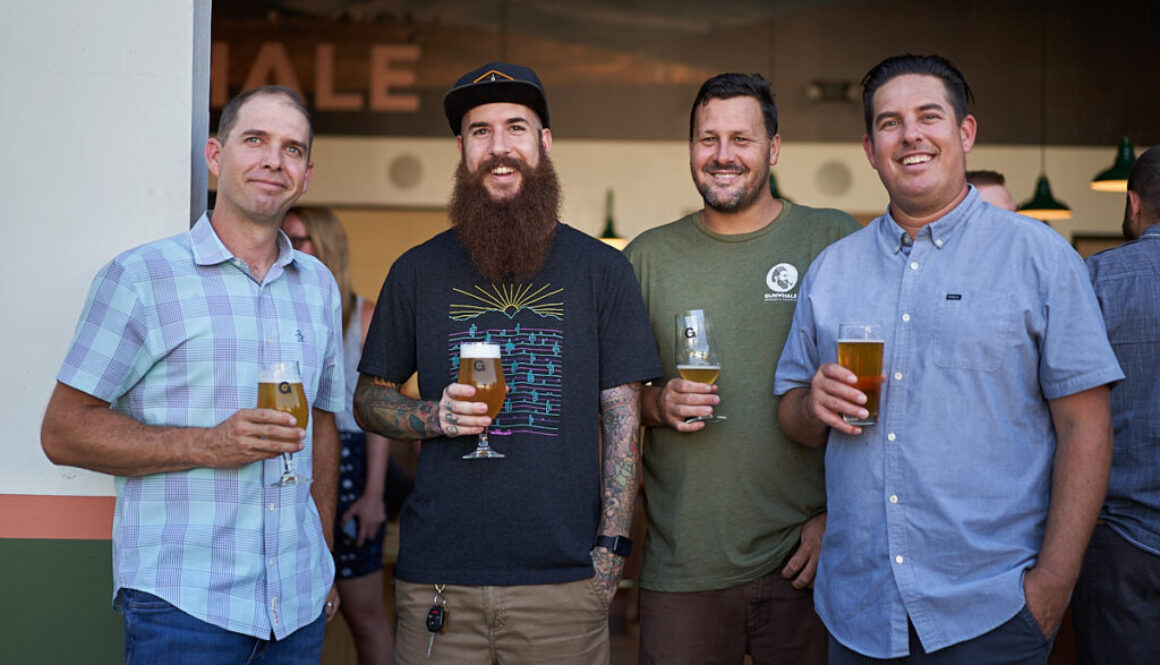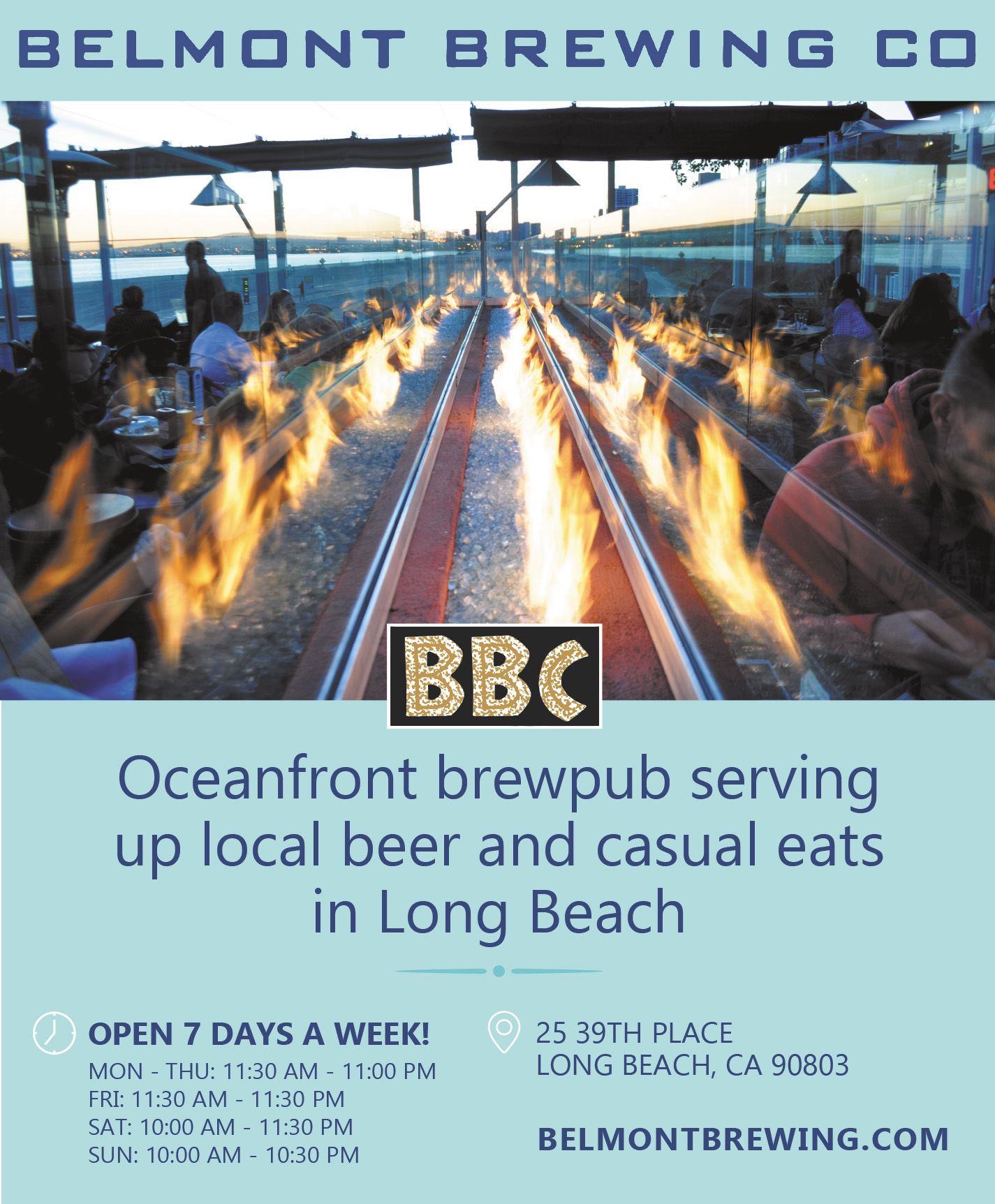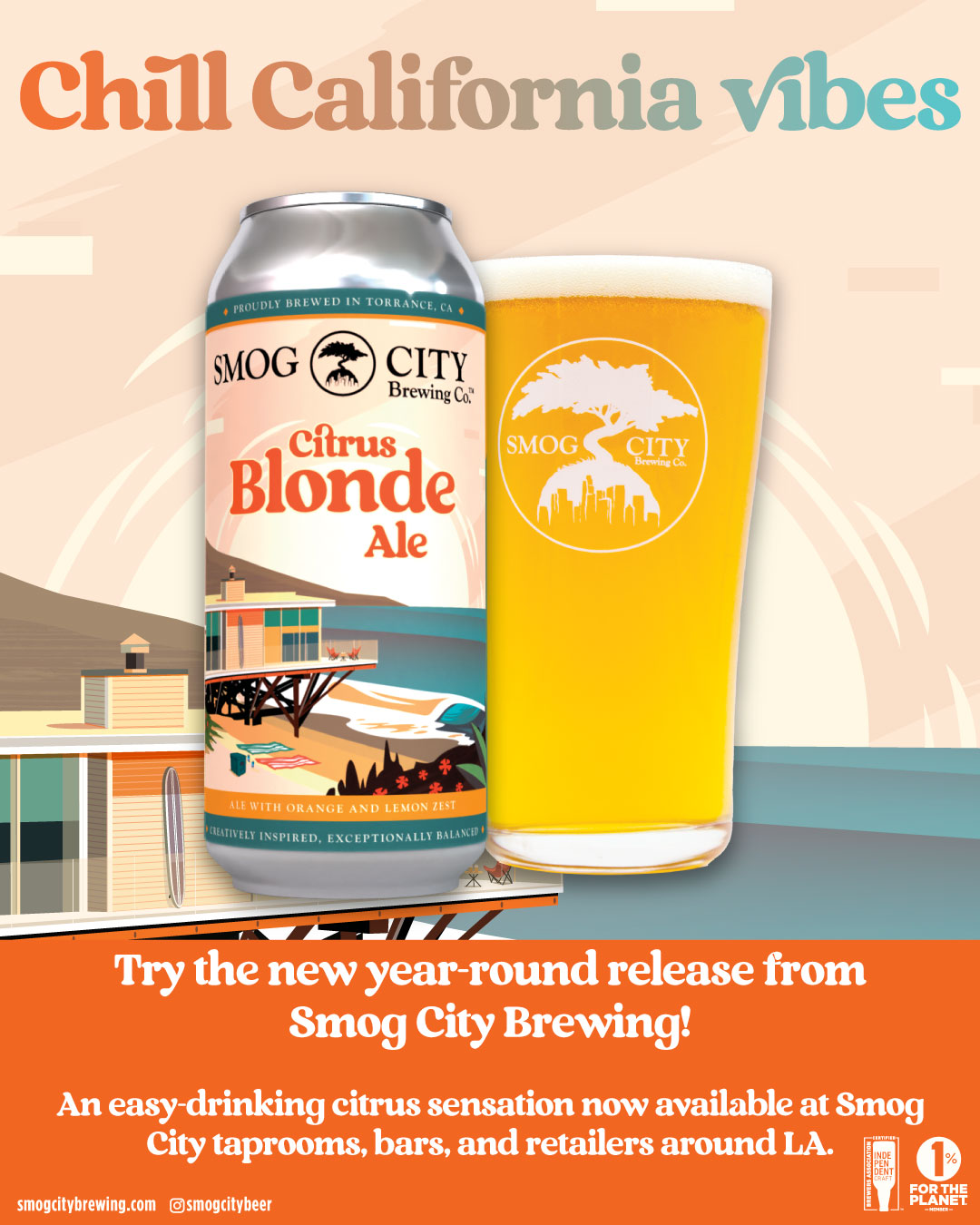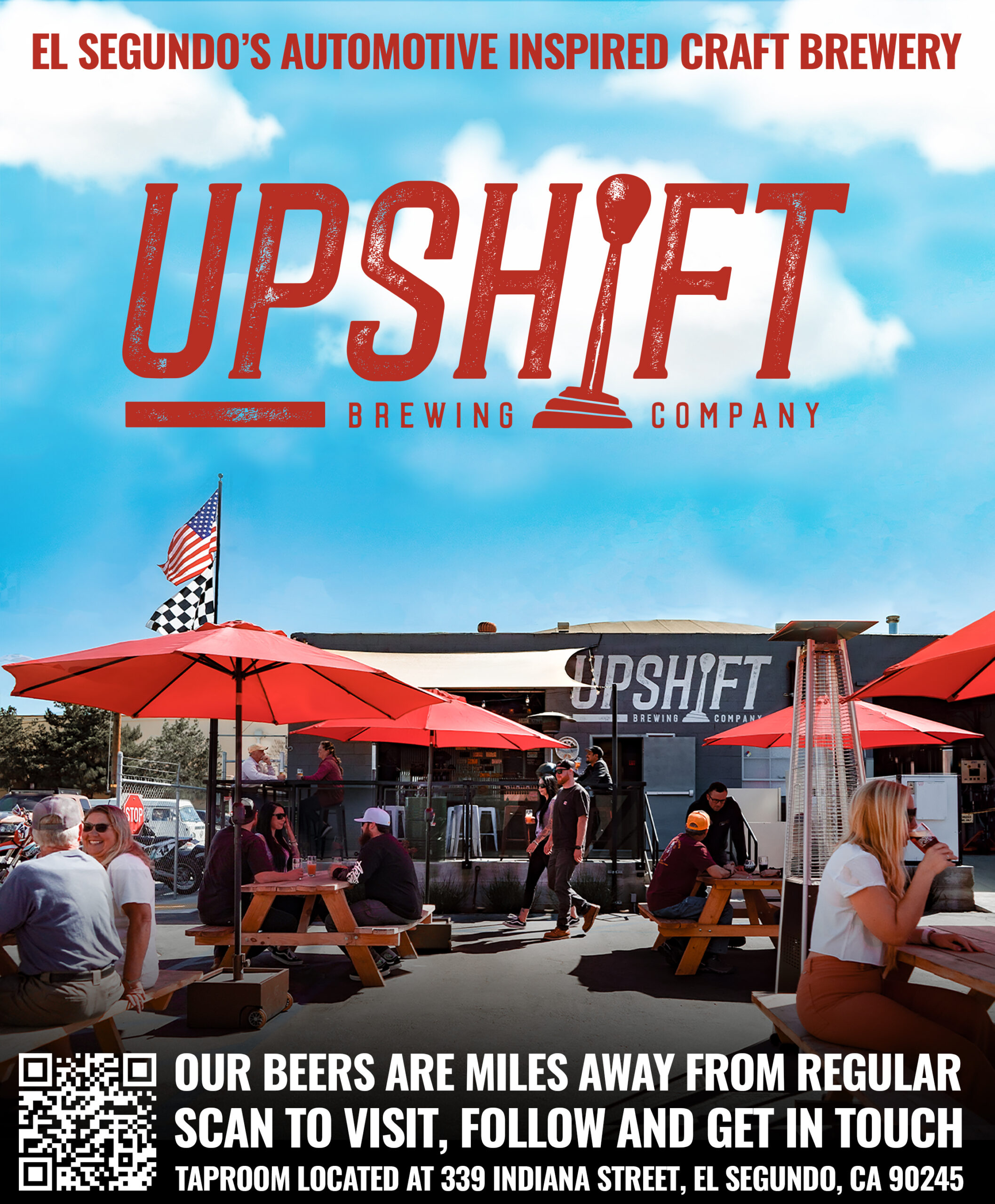GUNWHALE ALES: GOING COASTAL
What happens when three close pals who are self-described home brewing beer geeks decide to open a brewery in Orange County? Gunwhale Ales happens.
Justin Miller, a professional chef, and J.T. Wallace, an engineer/construction/J.T. of all trades, grew up in Newport Beach together, friends since kindergarten. Fast forward a couple of decades and Bobby Fitzgerald, who grew up in La Jolla and developed his love of beer travelling Europe in the ‘90s, becomes fast friends with Justin when their wives were both 4th grade teachers in San Diego.
Before you know it, the three are home brewing together on a Brew Magic system that would become the pilot system for Gunwhale Ales in Costa Mesa. With a shared vision and sage advice from Alex Tweet, yeah that Alex Tweet — the bad ass brewmaster of Fieldwork, the three men opened their brewery in late November 2016 in the building where J.T.’s construction work was based.
They hired Derek Testerman as their initial “pro brewer” but Testerman was committed to moving back to the east coast where he was from. After a year with Derek at the brew helm, they hired Kevin Hammons who was Director of Brewing Operation for Evans Brewing. Hammons had spent nine years learning his craft at The Bruery, moving from the warehouse there to the brew deck.
The first three years of success and critical acclaim at their intimate Costa Mesa location inspired the three co-founders to expand to a much larger second spot in Orange. The future appeared bright.
Then Covid-19 hit and, like all breweries, Gunwhale Ales has been hit hard.
I reached out to Kevin Hammons, whose beers I admire, and co-founder Bobby Fitzgerald, whose Cali-cool branding I respect, to ask how they are holding up in these trying times.
DRENNON: Kevin. Where did you grew up, what was your childhood like, and how did that mold you into who you are today?
HAMMONS: I grew up in Orange, CA and had a pretty “normal” childhood I would say. My parents were together and both worked to provide a comfortable living environment for my younger sister and I. I think that seeing them both work that hard gave me a strong work ethic.
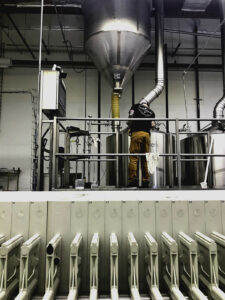
Photo Credit: Bobby Fitzgerald
DRENNON: What did you aspire to be growing up, and then what led to your actual path to become a brewer?
HAMMONS: I was always interested in science, but never really decided on a field. The science and technical aspects of brewing were definitely part of the attraction to me initially.
DRENNON: Like all brewers, you were a homebrewer. When did you start home brewing?
HAMMONS: I had a pretty deep curiosity about beer once I turned 21 and could go out and experience the variety of beer at places like Hollingshead Deli. A friend and I started homebrewing later that year when we were both still 21, in an effort to learn more about beer styles and what makes different beers look and taste the way they do.
DRENNON: How long was it before you thought you could go pro? How difficult was that transition and tell us about the learning curve to get there?
HAMMONS: I remember thinking after the first batch, “I think I want to try and do this for a living.” I had no clue how or if it was possible at the time though. I still hadn’t seen a brewery, and there weren’t really a lot around locally at the time. We just continued brewing 2 or 3 times a month for a while, and eventually joined the homebrew club BrewCommune. There I met Patrick Rue and Tyler King while they were just building The Bruery. After volunteering to help enough times I was eventually offered a job in the warehouse there packing orders, labeling and waxing bottles, and supervising the little homebrew shop in front. After about a year of doing that I jumped into an open brewing position.
DRENNON: You had a significant “climbing the ladder” seven-year stint at The Bruery. Tell us about a few of your biggest challenges and best highlights.
HAMMONS: We had a great team there, and it was really fun to learn and grow there for so long. Most of the biggest challenges ended up being the highlights. Every expansion we did was hard, but rewarding to see the results. Patrick dreamt up some pretty wild concepts sometimes and it was up to us to figure out how to make them a reality. Each time we succeeded in hitting that target flavor profile was a great feeling.
DRENNON: Then you moved on to become Director of Brewing Operations for Evans Brewing. How did that factor into your development as a brewer?
HAMMONS: I got to learn a lot more of the business-side of the industry there. TTB reporting, managing budgets, dealing with the ABC, etc. That brewery was also a lot more of a production brewery where we focused on fine-tuning a few brands and really maximizing output.
DRENNON: When, where and how did you meet the Gunwhale guys and what made the Head Brewer job attractive to you? What lessons have you learned in your three years at Gunwhale Ales?
HAMMONS: I had initially met them several times at beer festivals and events. When I saw they were hiring I immediately thought that it would be a great opportunity. They were less than a year old at the time still, so I had the chance to put my stamp on things and make some improvements I thought would be good. I was really interested in the mix of styles they were brewing. I also enjoy growth and pushing a company forward a lot, so moving to a small startup brewery with an upcoming expansion was enticing as well. I have definitely learned a lot. We did most of the work on the Orange facility ourselves, and there were a lot of construction tasks that I had never done before. We have a mash filter now on our new brewhouse, that’s something I’m still learning.
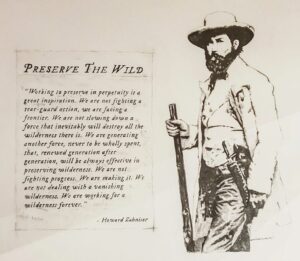
Photo Credit: Bobby Fitzgerald
DRENNON: Tell us about the Gunwhale name, the coastal ales idealogy and what “Preserve the Wild” means to you and the co-founders. Bobby Fitzgerald is the artist-in-residence at Gunwhale, so feel free to kick this answer to him if you wish.
FITZGERALD: The brand architecture really is about the place. We wanted to capture the intent of farmhouse brewing, but on the West Coast. And being located in Orange County, named for its history of fertile growing fields for citrus, beans, nuts…we thought a coastal concept, right between land and sea, would fit the vibe. The beers are about what grows here, the seasons, the people, the geography, the history from early on until now. Belgian brewers talk about “brewing to make the landscape known”…and I think that resonates with us.
We were always going to focus on both Saisons and IPAs. That meant rustic, yet complex beers with big aromatics and high drinkability. These are beers that are well hopped, but we also really push the yeast to for nuanced expressions. We thought it fit the lifestyle, the cuisine, and we liked how it allowed us to recall traditional techniques but also allowed us to create our own version of what we loved about the beers that brought us into the business. “Preserve the Wild” is a tagline that refers to the wild beers we make, but also a nostalgia for vintage California, its rugged terrain, abundant resources, and an Old West individualism.
DRENNON: As Bobby just pointed out, he and your other co-founders Justin and JT are passionate about farmhouse tradition and crafting lovely saisons. As the head brewer, how have you juggled that core sensibility with the need to also make West Coast hoppy beers?
HAMMONS: I look at each beer style from both an artistic and technical perspective. Brewing farmhouse styles is more of an expression of yeast esters and rustic malt character, and trying to balance the hops and any spices, fruit, or other ingredients we add to enhance that experience, but not overpower it. Brewing hoppy beers, you get to play more with hop combinations, addition times, dry hopping rates, etc. Getting that perfect balance of flavor, aroma, and bitterness, with the right malt balance underneath is the challenge there.
DRENNON: Do you have a brewing philosophy and what role does “passion” play?
HAMMONS: I don’t know if I have a philosophy per-se, but I guess the first word that comes to mind is “simplicity.” Not muddling flavors with too many ingredients, using real fruit and ingredients that aren’t overly processed, improving brewhouse efficiency, and tuning cellar processes. Passion is everything in brewing. It isn’t an easy job in general, but it is so much more difficult to constantly push to grow and improve in every way possible. It takes a lot of passion to not only try to always make the best beer possible, but also to grow and learn to be the best brewer you can be.
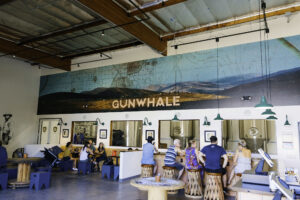
Photo Credit: Justin Halbert
DRENNON: Gunwhale recently announced that you have signed a distribution deal with Craft LA and Craft SD. What is exciting about this new partnership and direction?
FITZGERALD: We’ve always had interest in the brand and the styles we make from outside of our county. We simply were too small to make an impact. Finding distribution partners will be key for us. We have to replace the taproom income that has been lost, and we luckily were moving towards expansion already. Having the whole territory from Santa Maria to the border of Arizona to the border of Mexico under one roof just makes sense to us. And Craft Beer Guild has the infrastructure and team in place.
HAMMONS: It’s a huge opportunity for us to get our beer out to a larger market. We’ve always seen some demand outside of Orange County, but were unable to do much about it when we were self-distributing and before we had the larger production facility. We brew beer for people to enjoy, and now more people can so that’s great.
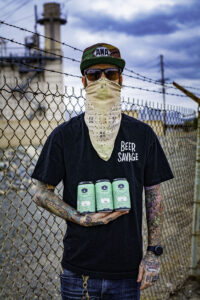
Photo Credit: John Troxell
DRENNON: You also just bought a canning line. Who did you go with, why and what are the associated goals with making this investment?
FITZGERALD: The quick answer is that we always planned for it, but mobile canning costs are high, and beer is being sold in cans right now. It was time to pivot and move quickly.
It is a Cask Automated canning line. We liked it because it was used and affordable. But it is compact in size and runs about 35 cans a minute, and it should produce low DO with control easy enough to run with a lean team.”
HAMMONS: We’ve been increasing can output a lot over the last year or so. Having our own canning line allows us to keep quality at the highest level, and also allows us to keep the beer competitively priced in the market. We went with a really nice Cask line that we were able to find used for a good deal.
DRENNON: Your original spot opened in November of 2016 in Costa Mesa followed by the second location in Orange which opened late in 2019. Now, the original brewery will serve almost like your R&D facility, focusing on small batch, mixed fermentation and wild ales. Explain the advantages.
HAMMONS: Right now, just having the smaller tanks there to be able to continue to develop new beers and have some fun with draft-only projects is critical while the larger tanks in Orange are mostly used to keep cans and some core brands going. Draft sales have declined massively since COVID and this allows us to make just enough without sitting on anything too long. Eventually it will fully convert over to brettanomyces and mixed culture projects. It’s really important for us to keep that separate from clean beer in order to maintain extremely high quality standards.
DRENNON: I would be remiss to not ask you about the impact of COVID to your business?
FITZGERALD: Opening a brand new large location and not having your taproom to pay the bills is brutal. If we were only our original spot, we would have been fine. But no one could have predicted this. We were also hoping to have baseball season to help bring in the crowds, since we are very close to Angels Stadium, and that too was cancelled. We run a very lean operation, and don’t really have enough full time people to operate 2 locations, and add ecommerce, distribution, and delivery in order to make up for it. But that’s pretty much what had to happen.
HAMMONS: Losing most of your tasting room sales hurts a lot. We’ve been fortunate to do well enough with to-go sales, but those will never sustain a brewery for long. Having just opened the production facility and larger tasting room in Orange was also pretty inconvenient timing.
DRENNON: Do you see a full (financial) recovery and, if so, how long will it take?
FITZGERALD: Eventually we will get back to normal. This is a time to pivot, and not be caught flat-footed. As a business owner, you cannot be paralyzed. You have to find a way through. We are lucky to have such a loyal customer base…and that comes from selling beer one by one to locals for 3 years through the taproom. I think it will take a while to fully recover, but we worked our tails off to expand, and we finally have infrastructure in place to get the beer out. Hopefully those outlets are happy and we hope our many retailer partners make it through as well. We make it together.
HAMMONS: I think we’ll end up fine eventually. I know a lot of breweries are hurting, and many are closing. We’ve done pretty well to find ways to sell beer by switching to mostly cans vs kegs and signing on with Craft to help distribute. We also have a lot of loyal customers supporting our tasting rooms, whether on the patios or to-go. It will definitely be a long time until things go back to normal though.
DRENNON: As a brewer, especially in this insane year of 2020, you probably don’t have any time for hobbies. But down the road, what do you enjoy doing should any spare time ever materialize?
HAMMONS: I enjoy cooking, so I still get to do that everyday pretty much. I also like hockey and look forward to both watching and playing again. I’m on a beer league ice hockey team, but it’s been a long time since we were all on the ice together.
DRENNON: My favorite question: between talent and work ethic, which is more important?
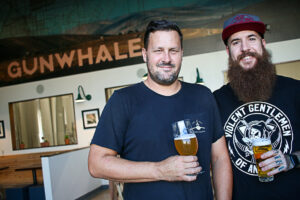
Head Brewer Kevin Hammons
Photo Credit: Jeffrey Craig
HAMMONS: Work ethic, definitely. Does anyone say talent? Talent only gets you so far, and even with talent, if you don’t have the work ethic to apply it it’s useless. Working hard towards goals can build talent, but it also builds strength and intelligence.
DRENNON: If you had to describe yourself in one word or phrase, what would it be?
HAMMONS: Reliable.
DRENNON: Any final thoughts in these trying times?
FITZGERALD: We still love beer. Some people have become jaded as the industry has grown and evolved. Beer has become many things and that is great…but to us, it will always be best at being a unifying force. Beer is the age old past time because it has always been about community…from the harvesting of grain and hops to communal nature of eating and drinking it, sharing it, and relaxing over it. We hope it can continue to reach new consumers, bring diverse peoples together, and help us share the humanity in one another.

